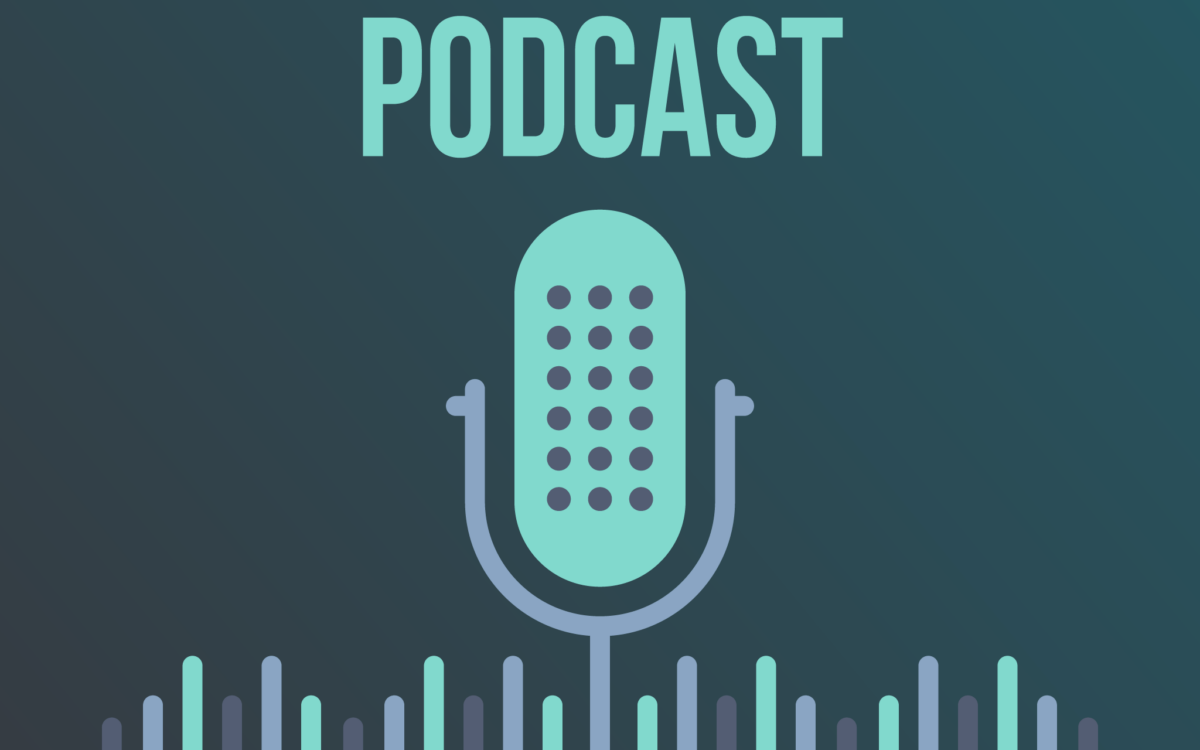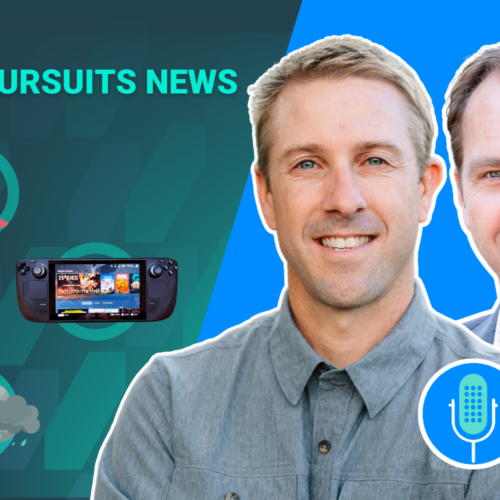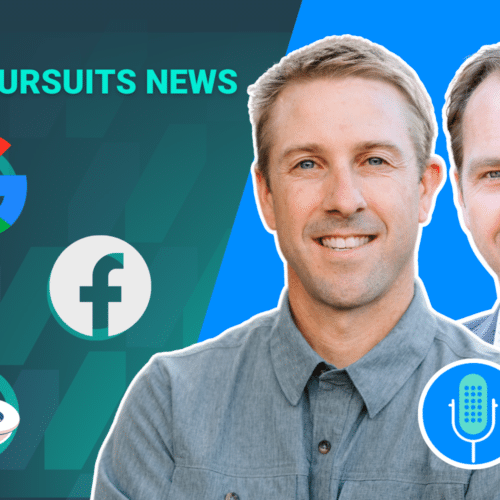Podcast 157: How Matthew Woodward Went From Delivering Newspapers To $1.2 Million In Profit Online

When you buy something through one of the links on our site, we may earn an affiliate commission.
Today, I'm excited to have Matthew Woodward from matthewwoodward.co.uk on the podcast. Matthew and I have interacted quite a bit online over the years, but this is the first time that we've had a chance to hop on a call and chat.
I hope that you'll find it as interesting as I did, to hear more about his background and how he got started making money online. Matthew has a huge amount of knowledge with anything SEO related.
Today, we jump into how to do an SEO audit that can dramatically increase your search engine traffic. We also dive into some specific on-page SEO tips that you can implement as well. Overall, I hope you enjoy Matt’s story and the business advice that he has to share.
Mentioned On The Podcast
- matthewwoodward.co.uk (Matthew's blog)
- Spamzilla
- Link Whisper
- Ahrefs
- WP Shortcode Pro
- SEMRush
- Matthew's Facebook Group Inside Search
- Matthew's Youtube Channel
To get in touch with Matthew you can sign up for his email list, join his Facebook group, or subscribe on Youtube.
Thanks for listening!
Full Transcript
Spencer: Hey, everyone. Welcome back to another episode of the Niche Pursuits Podcast. I’m your host, . Before we jump into today’s episode, I wanted to tell you a little bit about Ezoic. Ezoic is an ad platform that I have been using on my Niche Site Project 4 site and I’ve been very happy with it.
Ezoic is a Google award-winning technology that everyone from niche website owners to major brands use to grow and monetize their websites. Ezoic is also a Google-certified publishing partner. The platform leverages artificial intelligence to learn from website visitors with the goal of providing more personalized experiences that will improve on page experiences, which is session length, while also optimizing revenue and monetization on a per visitor basis.
The Ezoic platform features everything from intelligent website analytics to advanced automated visitor segmentation tools that allow publishers to improve visitor experiences and increase overall website revenue. Overall, there really are some big benefits to using Ezoic. It’s more than just an ad platform, but it truly is a platform that allows publishers to implement sophisticated ad operations and monetization practices on their website using advanced artificial intelligence. This allows publishers to manage as much or as little as they want. You simply drag and drop ad placeholders, and Ezoic will help automatically test thousands of ad partners, ad locations, ad types, and control ad density. This means Ezoic optimizes revenue and engagement for each unique visitor, maximizing the revenue publishers earn. If you want to go and check out Ezoic, you can go to nichepursuits.com/ezoic.
Today, I'm excited to have Matthew Woodward from matthewwoodward.co.uk on the podcast. Matthew and I have interacted quite a bit online over the years, but this is the first time that we've had a chance to hop on a call and chat. I hope that you'll find it as interesting as I did, to hear more about his background and how he got started making money online. Matthew has a huge amount of knowledge with anything SEO related. Today, we jump into how to do an SEO audit that can dramatically increase your search engine traffic. We also dive into some specific on-page SEO tips that you can implement as well. Overall, I hope you enjoy Matt’s story and the business advice that he has to share.
Matthew, how are you doing today?
Matthew: Hey, I am good. Thank you for having me on.
Spencer: Excellent. It's great to connect via the podcast. I've been reading your blog for a while and I understand, you've been reading Niche Pursuits for a little while.
Matthew: Yes.
Spencer: Good, it's great to finally get on a call, chat and build the relationship a little further.
Matthew: Yeah. It's funny that we've not connected before. It seems we've both been watching each, but not actually speaking to each of each other, so thanks for having me on.
Spencer: Absolutely. I know we've exchanged emails and things, but it's not quite the same. Before we jump into what you're doing right now with your business, can you give us a quick background on some of your business and work experience, previous to building websites?
Matthew: Previous to building websites, I guess delivering newspapers which only paid for the server to build websites. Before building websites, I can't really tell you much about that. I guess I made some money competitive gaming when I was younger, which led me to building websites, but otherwise, I've been building websites since I was delivering newspapers quite literally, before YouTube, before Google. I was using notepad.
Spencer: Nice. What took you that direction? Why did you decide that you wanted to be building websites?
Matthew: I’d always played with computers as a PC gamer when everyone else is a console gamer. We were few and far between. I'm talking original Counter Strike, Unreal Tournament, those kind of days, 33K modem. I got involved in competitive gaming and people were making demo videos of the best highlights and things like that.
Just to put it in perspective, for us to create a video, we have to use video out from our PC to a VHS player. You hit record on the VHS tape, some of you might not know what is, so listen in. Then after you finished recording, you have to put it back to video in on your PC, press record on the PC and press play on the VHS, that's how we captured the video of the PC game at that time.
Spencer: Old school.
Matthew: Yeah, and this was before YouTube, so sharing videos was not easy. We literally have to create FTP logins for people to upload videos because PHP just couldn’t handle it at that time. I was building websites before I knew you could make money with a website. I didn't really click for a little while after.
Spencer: Yeah. So, you did some gaming, you did some videos, built some websites. When did it click or what was that first dollar that you made or that first online business venture that you had that made some money?
Matthew: I was always interested in sales growing up. My dad was one of the best car salesmen in the UK and passed his sales stories and manager stories down to me. So, I was always finding some way to make money in school with Pokémon cards or whatever it was at the time, just following the trend.
That naturally, with my web skills, led me into doing marketing online and specifically in ecommerce. I got jobs doing data entry for that kind of work and ended up heading up teams for major ecommerce campaigns with big major global brands with great success.
Corporate world’s not for everyone. Certainly not for people that tell it like it is and definitely means that world’s too much. It was a tight thing to fit in there, so that led me to doing my own thing.
While I was doing the whole corporate thing, I was doing huge things in referral marketing for free gifts, like free iPods, free whatever it was. If anyone was in affiliate marketing that time—you might remember it—you get free iPods if you get 12 referrals kind of thing. That’s really where I started to make decent money and led me to quit the corporate world.
Spencer: How are you generating your traffic to these CPA or affiliate offers that you had?
Matthew: Everything was through SEO and just ranking site. It was a lot easier then than it is today. The main affiliate offer that made the most money was if I could get like 10 people to sign up to this offer, I got a free iPod Touch.
At that time, it worked out each person I got to sign up to this offer, made me $30. The offer that I had to get people to sign up to was a little film DVD rental trial. Anyone from the UK will know what that is. You sign up on a website, you said what DVDs you wanted, they sent them in the post as a as a rental, with an envelope to send them back and that was it. But if people signed up to the free trial of that which cost absolutely nothing, they got two of their favorite DVDs for free and I got $30.
The offer was irresistible. While it lasted, we made a ton of money and all of it was through SEO traffic, ranking the pages. We had number one for free iPod, free iPod Touch, free iMac, free MacBook air, you name it. You think about it, we had multiple sites and rankings and it absolutely lit that up. It was sites like that really allow me to cut my teeth away from the corporate world and things got out of hand from there.
Spencer: Very cool. I've always known that SEO is your core competency, if you will. You've been doing SEO for a long time, it sounds like, even from the very beginning there. Let's fast forward now and tell me about your business now. Clearly, you're still doing very well with SEO, your own personal brand, but give us an idea about your business right now. What are you involved with? What are you doing day-to-day?
Matthew: Right now, lots of things. In the last year, I bought a house in Costa Rica and put my roots down here and had a terrible time of a six-week renovation. It turned into a nine-month renovation, cut down a month of work. But it wasn't even that. I couldn't work for six months properly. I didn't really have an office or space and that was a lot of distractions.
Some of my readers know, but not essentially everyone knows, I had a baby last year, as well, which has been great. We live pretty close to the beach, so that was eating it into a lot of work time as well. I actually sold a lot of my price comparison sites last year to free up some time and bring in some money as well. The last year has been lots of changes.
Spencer: Yeah, sounds like it for sure. Anytime you get a new baby involved, that changes a lot.
Matthew: Oh yeah. New house, new baby, all of the above. It changes a lot and certainly challenges time, but I didn't really have anywhere to work, either. So, it is what it is. That then lead this year to finally having a real office. I built a video studio in the house. I've actually got a real place to work which I hadn't done really not for about six months and that’s allowed me to really get a focus back on lots of capital from sites sold and looking at what to do.
Right now, I still got a few older cash cow sites that chug along nicely. I recently built three niche sites that are all aligned to… Well, you know what happens when you give away niches in sites.
Spencer: Yes, I do.
Matthew: They're all aligned to sustainability. They're all aligned to that, in one way or another. I got a great domain yesterday with links from World Wildlife Fund and I guess if you guys are building niche sites, I hope you’re building them on expired domains. I've got awesome link profiles. If you're not, I guess I'm going to get some follow-up questions.
Spencer: That's a great way to jump start, right?
Matthew: Right. You can build a site on a virgin domain with no links, or a domain that’s got a ton of links from high authority places. You have to be careful that you don't get too greedy because it's easy to see an attractive domain and it’s the anchor text pointing to it aren't that relevant, but if you can find a generic branded domain that’s got generic branded anchors to it that you can tie to your niche, it's absolutely great.
In your niche site example right now, for example, I might go to Spamzilla, and in there just type shed, or yard, or garden, and just see what there is, have a look through the backlink profile, if it looks legit and it looks relevant, yeah, absolutely, you should be building your niche sites on those. Quite often, you can find them for the exact same price as registering a new domain. You should be doing that, for sure.
Spencer: Yeah, so a good tip there. You've got a few niche sites and then obviously matthewwoodward.co.uk. I know you're putting a lot of time. Like you said, you've got a video studio now, you're doing a lot more on YouTube, obviously writing content there. I assume that's where you put most of your time?
Matthew: In terms of my time, my time goes across managing everything, but in terms of the team's time, we're building niche sites out, one in every six to eight weeks.
Spencer: That’s pretty aggressive then.
Matthew: Yeah. We compile between 30,000–40,000 words of content across that time and keep scheduling them out. I've got a link building team and we're doing outreach on an industrial scale that supports the niche sites and everything else. The team we use to supply links to the agency, everything helps each other along. We're probably going to build another four niche sites this year. That’ll take the total up to seven by the end of the year.
Just great that side of it. All of that is run by one person and they're in charge of writing the content as well. In terms of what else we work on, obviously, the Matthew Woodward SEO World that you're all familiar with hopefully. The blog, due to my distractions last year, I wasn’t updating it, it slipped into maintenance mode. I wasn't really pushing it. It was like what-was-the-bare-minimum-to-keep-it-ticking kind of thing and it slipped in a number of ways. The first task of the year was to do a renovation on the blog mostly focused on helping people, solutions to their problems as quickly as possible.
For any of you guys building niche sites, blogs inherently are selfish. They're just a list of blog posts. That’s the default thing. Make sure that you're building home pages that connect your reader’s problems to the solutions your content offer as quickly as possible. It's almost common sense, but it's something I hadn't applied on the blog. That was a big part of the renovation and that mantra was the approach that we took to it.
Spencer: Very good. You do a good job of connecting with your readers and finding solutions. I'd like to give our listeners a sense of how well your business is doing. What can you share that will help people understand the success of both sides of your business, your niche sites versus matthewwoodward.co.uk?
Matthew: We'll start with matthewwoodward.co.uk. The success of that blog is a complete accident. I never intended it to go how it did, but for anyone that wants to follow it, the entire progress at the site was documented from day one, every month for five years, so like you've been publishing your niche updates monthly, I published essentially a niche update every month for five years as income reports. That showed how everything grew from zero, literally zero to $1.2 million in profit.
Spencer: Wow. Congrats.
Matthew: Yeah. I never expected it to go like that. That’s just the blog. The blog then allowed me to launch other things like my agency, other product courses. The total is well beyond that. At the time, I stopped publishing income reports, it was making around $25,000 a month in profit. Cash cow affiliate sites are pulling down similar numbers and hopefully all the sites I've been building this year will turn into some healthy numbers in the very near future.
Spencer: Yup. Just keep increasing those numbers for sure.
Matthew: Yeah, and then I can share some of those sites, case studies, and learnings through the blog which will help people there. Hopefully, all the dots will connect to each other and elevate everything. That's the plan.
Spencer: Yeah. I see it very similar with my blog. I can use a lot of what I'm doing with my niche sites for the content I'm writing for my blog and they feed off of each other and hopefully, everything goes well.
Matthew: I've been very shy of talking about niche sites and sites of people because of experiences like you've had. We'll see if you found a way to deal with it.
Spencer: Yeah, we'll see. I do think Google is getting a little smarter. Some of the things that happened with my early niche site projects, I don't think would have as big an impact now, but certainly, there's always going to be copycats. I'm just increasing my own competition.
There is definitely a downside to revealing, but hopefully overall, it’s a positive experience. Maybe my site's not going to do quite as well because it increased competition, but maybe my blog, people will feel a better connection there because I have been so open. It helps my blog if nothing else.
Matthew: Yeah and as a reader, all of that is much appreciated. We’re all watching with intensity when there's a post that comes out. I'm sure like everyone else listening, we’re like, “Woah. The site is revealed,” and we pulled it apart, we put inAhrefs, and we did other things. We all live by every single […].
It's something I'm wary of. If I was going to do a case study site like that, it would be one say we’re very established, to remove the chance for people to compete. But thank you very much for sharing it, because we are all learning from them for sure.
Spencer: Absolutely. Now that people have an idea of how well your business is doing, I want to dive into how you got there and specifically, we can focus on matthewwoodward.co.uk unless you have other examples you want to share. I'm just curious of what your high-level strategy is that you followed for SEO specifically.
Matthew: Specifically for SEO, the blog is a bad example because that was an SEO experiment. It was at the time Matt Cook kept banging on, “Oh, build quality content. Don’t worry about links. It will be fine. Just build content,” and I was like, “Yeah, yeah, yeah.” He was right, it turns out, because all I did was build quality content and it exploded.
It was never done with any strategy, it was never done with any planning, and it was specifically part of a zero link building strategy. Talking about that is not a good example, but if we're going to talk about how we traditionally do SEO with affiliate sites, we do a lot of that.
SEO in general I find people really over complicate it. It's a three-step process. It’s simple. Step one, technical SEO. Step two, create content. Step three, build links. It seems people get stuck on each of those points. Maybe I'm over simplifying it, but one of the biggest mistakes I see when I'm reviewing niche sites all the time is that people don’t build a solid and healthy website structure that Google loves. By that, I mean researching the structure, the silos, the categories, how the content fits within. Making sure that there's internal links and if your link is […], by the way, it’s going to change how people build niche sites over the next year. I'm absolutely sure of it.
Spencer: Yeah. Thank you. I appreciate that.
Matthew: Yeah. It’s needed it for a long time because my internal links manually sucks.
Spencer: It sure does.
Matthew: A lot of people skip over those very basic steps of building. Make sure you're integrating structured data in the right way. Take care of page speed. Make sure that the user experience is there like does it look good on a mobile phone? The basic forms of technical SEO. Many people just glaze over them and are not paying attention to them.
Spencer: Let’s dive into that just a little bit more. I know I get a lot of questions, you probably still get a lot of questions about structure. Whether you call that silo structure or whatever you call it, having the right architecture of your website. Can you dive into that? Specifically for an affiliate website, what's the right structure? What's the right silo category structure that you have?
Matthew: There's not a right or wrong answer to that nor is there a specific advice that you can give to everyone. It depends on the niche. As you’re researching it, you'll find recurring themes within your research. You might see a recurring theme come up often enough where you're like, “Yeah, that's going to be a category of content on the site.” But what that recurring theme is, is completely different in every niche. There's not a right or wrong answer to it.
Just look at what the recurring themes are. Use your eyes as you learn about the niche, like what are people struggling with and how can you categorize those problems. If you're struggling with categorizing those problems, you can use tools like […] just to come up with some very base categories and then see where the content fits in. But it really is a game of manual observation and using your noggin. That's really all there is to design and structure. Again, people over complicate it, but that's it.
Spencer: I agree and correct me if I'm wrong. I think one problem that some people have is having way too many categories. They throw on 20 different categories on their site and it's like, how do you even manage that well at least to start. Is there an ideal number of categories that you recommend or does that just vary as well?
Matthew: Again, that varies. Some sites lend themselves some more categories than others. You can't start where you finish. It might be that a niche lends itself to 10 categories. It might just be that, but you don't want to do all 10 categories at once and then you have to prioritize which categories you do first. If you're going to launch your site, you should at least be launching with three categories. All with at least 3-4 pieces of supporting content within each of those categories.
If you launch 20 categories, then you've got to have 3-4 bits of support in content for each category. Now, your time to launch is like when I create a ton of content. That's about the right way to do it. Keep it simple. Don’t go overboard.
Spencer: I 100% agree. It's one of those things that when you and I talk about it, we say, “Yeah, it's simple,” because we've done it so many times, but I do know that people listening in, appreciate the additional details, you saying start with probably 3-4 categories is a good place to start to get your site out the door. That gives them some concrete things just because they have never done it before. That's good.
Let’s move onto a content strategy. Again, we can talk about either your personal brand, your blog there, or other examples that you have, but what is the content strategy that you follow there?
Matthew: The content strategy, again, this is something I find people struggle with a lot, but I tend to find that the people that are struggling with it are trying to cut corners. Content is the face of your business. One way or another, your content is going to lead to Google ranking, and/or clicks to your affiliate link. It is literally the glue between the seams of your business. It’s not something that you should cheap out on and it's not something that you should take shortcuts on. With that said, creating content sucks. It's hard work. To do it to a high standard, it does take a lot of effort.
Before you start creating content, you need a decent keyword research strategy. Everyone has a different methodology to how they approach it. Me personally, I just steal my competitors keywords. I’ll go out, I’ll find a list of my competitors.
I actually have a tool I've shared on the blog to build a keyword strategy, but essentially, you just put data into it and it automatically says, “These are the keywords you should attack and these are the order that you should attack them in.” That's how I form the basis of the keyword strategy. If anyone wants to download that sheet, hit the homepage in my blog and you'll find it.
With that in hand, it’s the research part, and the research for content is done manually. Again, do not underestimate the power of manual observation in SEO. Everyone's distracted with tools, and analysis, and big data. You don't need any of that. You've got Google, you’ve got eyes, you’ve got a brain, just use them. Find out your target terms, hit it in Google, take a look at what's ranking.
There are lots of review pages ranking. If there is, you know you’ve got to write a review. There are lots of list post ranking. If you know that, you’ve got to write a list post. There are lots of opinion pieces ranking.
Look, what do you see? And based on what you see is how you should create your content. Look through each piece. What do you like about each piece? What don't you like about each piece? Make a list of that and that will essentially become the specification for your content.
I said it, keep it simple. You don't need any expensive tools to do that. Just look, use common sense. Google right now. If you do a Google search, it says that people also asked box. You might want to include some of those questions. When it comes to writing the content, as you're handing it over to a writer which you have been doing with your niche site, right?
Spencer: Correct.
Matthew: Be as specific as possible with your request. I always give writers a headline and the orders of the headlines. It really removes any issue from interpretation. If you're writing the content yourself, as someone that’s written probably millions of words of content with the Matthew Woodward blog, just wake up, get a cup of tea, sit down, and absolutely hammer it out. It’s a long grinding task. One of the disadvantages of starting a blog under your name, by the way, is writing for it.
Spencer: Yeah. It’s a big job, no doubt. So, do a lot of analysis, just looking at what’s ranking in Google, what type of content do they have, how you can make yours better than what is already out there.
Matthew: I want to interrupt you there. Sorry. Better is not a word count. There’s a lot of people doing 10 times content. No, don’t do that. That is not an intelligent business decision. If you look at the rankings and you see lots of pages with 2000 words, that doesn’t mean go and create a 10,000-word monster guide. It doesn’t. It means create whatever the average word count is plus 20%. Don’t go follow that trend of 10 times in your content. There’s no need. Look at what’s currently ranking. All right, if it’s loads of pages with 10,000 words on the first page, you got to write 10,000 words.
Spencer: Have fun writing that.
Matthew: Yeah, but it just loads the ranking with 1000, 1500, 2000, it’s absolutely no reason to write anything bigger than that. Just be aware that writing better content doesn’t mean more word count. I means more relevant.
Spencer: Yes. Good clarification. Perfect. And you mentioned, people also ask, so doing a better job of integrating those types of questions, perhaps, and other things within your content as well.
One follow-up question I did have on figuring out what keywords to target, keyword research there. Do you have a search volume minimum that you look at or what your criteria there?
Matthew: My sheet takes care of all of that and removes anything. It’s got logic there. It takes care of all of that. Again, what’s your minimum? It depends on the niche. There isn’t a minimum. There isn’t a right maximum. Everyone’s always looking for what is the right. It depends on the niche.
Some niches will have heavy, heavy 100,000 month search keywords, but they also come with heavy, heavy competition. Some niches have heavy, heavy volume keywords and no competition. Whereas some have high-paying affiliate programs, you only need 20 visitors to make some decent money.
So, it really depends on what you’re promoting, what is the volume of traffic in that niche relevant to the keyword that you’re looking at. There isn’t a right. In some cases, a 10 volume a month keyword is the right keyword to target. It depends on your individual business, what you’re promoting, and what you’ll be familiar with your business numbers. It really depends.
Spencer: Okay. That’s some good advice. Good tips there. We’re going to talk about link building in just a minute. That’s your third thing for SEO, but I want to jump into a case study that you did. You produced a great video on this and blog post, where you shared how you were able to increase the search engine traffic with an SEO audit by 45%. Tell us a little bit about this case study that you did and let’s talk about how to do an effective SEO audit.
Matthew: That’s a great way to introduce, though some of the SEO audit is good technical SEO, step one that we were talking about and content creation, step two. How this manifested itself in my own SEO blog was that last year was the worst year I ever had in organic traffic. My eye was off the bull. I wasn’t focused on the blog. It wasn’t something that I was paying much attention to and traffic declined. I paid the price.
So, I did an audit. In my opinion, if you want to increase the search traffic for anything, the first thing you should do is an SEO audit. If you haven’t done an SEO audit in the last year, you’re literally losing search traffic every single day that you don’t do it.
The problem is, SEO audits are boring. I sent this case to the […] my list which literally shows me increasing traffic by 45% without building a single link and it got a quarter of the open rate that it would normally. I don’t know why people have—even my own audience—some beef with SEO audit. It’s just not interesting.
Spencer: It sounds boring, I guess.
Matthew: If I send […] building strategy, it doubles the open rate than the app. If I’m like, “Hey, I increased traffic 45% in building a link,” no one cares like, “Does it?” I want to preface it. I don’t know why people are so turned off by SEO audit, but it is absolutely critical to your success and if you haven’t done it, you’re losing out on traffic every single day. So, get it done. I don’t care if it’s boring. This is business. You’re losing out on huge opportunities everyday that you don’t do it.
Now, in the audit itself, there’s a full 30-minute video that steps you through what I did and I designed because SEO audits are often very complicated. I designed a simple five-step process that anyone can follow.
If you’ve never done an SEO audit before, I highly suggest you look at that process and you follow it because for me, seeing 45% it doesn’t really mean anything. Let me tell you what it meant. It meant the difference between 50,000 visitors a month and 80,000. That’s an extra 30,000 qualified leads.
Spencer: It’s huge.
Matthew: It’s huge. It’s the first thing that we do with any site. If you apply to my agency and you ask a question like, “How many links are you going to build a month?” we are not going to work with you because that’s just full of alarm bells and not part of our mantra.
SEO audits and especially for people building affiliate and niche sites are something that you should be doing annually. If you just follow that five-step process with your niche site, don’t be surprised if you see increases in your search visibility.
Spencer: Can you just quickly run down what those five steps are? Obviously, people can go check out your video to get the details. I do think it is really important, but you can just give us a rundown of what these critical steps are there.
Matthew: To go through the steps would require a decent amount of time, but let me tell you some of the things I did that had the biggest impact that you will feature. One of the steps of the SEO audit was to optimizing existing content. Now, I’m assuming anyone listening to this has existing content and they probably haven’t optimized it in the right way. I did it in a four-step process.
Now, one of the problems I noticed was that the page layout kind of sucked. This was specifically relevant to me, but go and review your site. Go and look at it on a desktop. Go and look at it on a laptop. Go and look at it on your phone. Is it a nice experience? If it’s not, that the first piece of optimization you should do because if your content is not easily digestible, you’re just turning people off. So, go and fix that first.
For me, that meant that it was too wide. The readability sucked because your eyes literally felt like they had to do a marathon to get from the start of the sentence to the end of the sentence, all the way from left to right. So for me, making the page significantly narrower.
You might not have that problem, but it’s the first thing that you should check if you have that problem. “Is my content digestible on various devices?” I had a responsive theme. I had all the things that would lead me to assume it was, but in reality it wasn’t. So, that’s the first thing you should go and check.
Secondly, within the content optimization, featured snippets, position zero, that’s a huge opportunity in SEO right now. If you’re not actively optimizing for them, you’re missing out on a big, big opportunity. I wasn’t actively optimizing for them. I haven’t even thought about it when I was writing. My SEO blog was an SEO experiment in itself.
So, I went through all of my old posts and looked for different words like why, how, is, should. Words that typically trigger featured snippets, and then went and look, is there an existing featured snippet? If there is, how is that featured snippet presented? Is it in a paragraph? Is it a list? How many words does it have? How many list items does it have? And then I replicated that on my own content.
Any niche site owners out there, if you’ve got any pages ranking on the first page of Google, go and do a manual search. Is there a featured snippet? How is that there? Why is that there? Open it. Look at the source code. Let’s say for example, “What’s SEO?” Is it because there’s an H2 tag that says, “What is SEO?” and then the next paragraph says, “SEO is …” 50 words? That’s what you see? Replicate it on your site.
If you see a list post, if you just see a list of things, how many things are in the list? How did they do the HTML formatting on their list? Was it an organized list? With numbers? Or unorganized list or bullet points? Go and look at what people are doing. Try and steal those featured snippets. It’s very, very easy to do.
More often than not, those people are ranking for featured snippets are ranking by accident. If you come and look at that accident, observe and improve, you can rank with intent and purpose. It’s a big opportunity.
Spencer: That’s a great tip. Honestly, it’s not something that I’ve done and I’m going to go back and look at some of my stuff for sure.
Matthew: If you’re using Ahrefs, it will tell you within […] if the featured snippets are present for anyone who wants to do it at all.
Once you’ve taken cared of featured snippet opportunities, I added what I like to call visual pop. Visual pop for me is really hard to explain on a podcast, but if you watch the video I provide, lots of examples are in the video where I did this.
A lot of the times, the text wasn’t very readable, so adding visual pop rather than bullet points change them for green check marks. Make use of text highlighting, make use of bold, make use of image borders, things that make a standard piece of content with a few visual tweaks really make it pop and adds to its readability.
There’s examples within the video and the post; you can check them out. The way I use it is using the WP Shortcode Pro. That just makes it easy to style lists, add boxes, add toggles, that kind of thing. If any of you use page builders, you’ll be familiar with them. This allows you to do that kind of thing in any WordPress theme. So, I’m in through all of my posts and add a bit more visual pop in them as my styles develop over the years in an effort to increase reader time.
A lot of niche sites I see lack this. Great walls of six lines of text headers, six lines of big images, six lines of text headers. There’s no flow to it. When you’re just scanning it without even looking at the words, it doesn’t flow. If I doesn’t flow when you’re scanning it, then you need to add visual pop, break things up a little bit. There’s lots of examples in the video much better than what I can explain on a podcast.
The last thing that I did in the content optimization and something that all of you can do right now in the time it takes for you to listen to me to explain something you can integrate and you’re going to see great results from, and that’s adding a table of contents to every single single post and page. To do that table of content plus plugin, Google it, save it, go install it. That will install and I’m sure some of your are familiar with it, a collapsible table of contents within your posts. Do you know what I’m talking about?
Spencer: I do. I use that same plugin.
Matthew: Okay. So, if you’re not using anything like that right now, use it. Not only will it make your posts more usable for your readers, but it will help you get external site links within your Google search results, which helps increase your visibility and click-through rate.
There’s not many plugins where you can install and get immediate benefit. This is one of them. So, if you’re not using a table of contents right now, use it. On my blog, the way I used it was I had an intro and then an H2. I just put the table of contents right before the first H2. Feel free to go and check it out. I’m assuming that if you’re using it, maybe your audience is already familiar with it, but if you’re not using that plugin, go and install it right now and you should start seeing some benefits pretty soon.
Spencer: Very good. I know is a ton more we could talk about with an SEO audit. I want to get to a couple of more things. Any additional on-page SEO tactics or tips that have worked well for you that you want to share? Maybe just your top one or two there.
Matthew: You should look at the audit post to see it all, but the big one that you should all be paying attention to is page speed, load time. Again, it’s banging the same drum, but go and check out specifically how your page loads on mobile devices. Google’s using the mobile-first index. It essentially means it’s using the mobile version of your site to judge the performance of your desktop site. If it looks bad on mobile, it loads badly on mobile, it’s not going to rank very well in desktop. Make sure that you are paying attention to page speed.
I’ve done lots of experiments with different plugins, services, et cetera. The quickest wins in page speed are done by installing WP Rocket and ShortPixel. They’re not free, it’s going to cost you money, but they are the quickest ways to increase your site speed. Otherwise, you can use Autoptimize and WP Smush, but I had better results with the other two. That’s why I personally use across all of my niche sites. That is often the quickest win you can have because people often take shortcuts on the cost of hosting when starting their niche sites. These plugins help balance that decision a little bit.
Spencer: Those are great plugins as well. Great tips. This last category—this is your third point of SEO—was link building. As you mentioned, a lot of people get excited when they hear link building. That’s the favorite topic for a lot of people in the SEO world, which may or may not need to be the case as you mentioned. There are other very important things. But link building, link search is still important. Google does value links. So, let’s talk about it. What is your link building strategy?
Matthew: People have obsessive-compulsive backlink disorder, that’s what I call it. They’re blind to the rest of the world of SEO and that’s evident just looking at my own data from what’s the most popular content in my email open rates and everything else.
Links are the most important ranking factor. They are. There’s no arguing that, no one’s challenging that, but the value of the links is amplified 10 times over when you build a solid site structure that Google loves backed with quality content. When you do that, every link you build is worth 10 times the value. It just amplifies. Building that right structure amplifies your link building and effects. It’s important to consider that.
Also, I was at Affiliate World last week and presented a case study. In that case study, we took site traffic from 5000 a month to 38,000 a month in the health niche. To do that, we only built 76 links. Over the course of the campaign, the site attracted hundreds of links. The reason it attracted hundreds of links is because we built a good foundation and good content first. Otherwise, we would have had to rebuild all of those extra hundreds of links, which steal our time and money. No one likes linking to a lemon, so don’t build a lemon. With that said, link building is effective, but again, it’s 10 times more effective when you’ve taken care of the basics first.
If you are the type of person that has taken care of the basics, you may listen to the next part of link building. For me, my favorite link building strategy of all time is competitor analysis. Just like with keyword research, I like to see which keywords are ranking best for my competitors. I also like to do the same with link building. There’s no reason to reinvent the wheel. If you do a Google search, Google is literally telling you, “This is the type of stuff we want to see that belongs here.”
So, if you just look at the link profiles of your top five competitors, then download them, and just work through the list replicating them, you might say, “Oh, well. This guy got this link because he did a guest post. Cool. I’m going to submit a guest post.” “This guy got this link because he did a guest comment on this blog. Okay, I’m going to do a comment on this blog.” “This guy got a link because he donated to this open source software thing. I’m going to donate to the open source software thing.”
You can just replicate what’s working. Google is telling you these links are great because we’re currently using them to rank the top five sites. If you apply what’s currently powering the top five to your one page, you see great results.
The reason I love that strategy is it stood the test of time. It survived every update, it’s always current because you’re doing it live, observing with your eyes in real time, and this strategy applies to every single niche site. Often, you can do it for free. It needs nothing but time, a little bit of effort, and again, if you hit the homepage in my blog, you can download my intelligent sheets that actually build the link building strategy for you based on real world data.
That’s what really works beyond anything else. That’s what brings the best results. If I’m looking at my outreach results, that’s what brings the best response. That’s what brings the best closest. That’s what we do. It is highly effective. How I do it has changed over the years, but the theory is the same.
In fact, last week on my YouTube channel, I posted an updated version of Backlink Competitor Analysis, the latest video on YouTube, which explains that strategy and how I’m doing it right now. Nothing special that I don’t feel. That’s it.
Spencer: You make it sound pretty simple. Just look at your competitors, what links they’re getting, what links do they have to their content that’s already ranking in Google, and try to get those same backlinks. Certainly in some cases, like the cases that you mentioned, you might build to get a guest post, or leave a comment, or donate, or do something else that is fairly easy to replicate, but certainly there are going to be a lot of links that are difficult to replicate.
Do you do the best you can and then skip over the ones that you can’t replicate? Or do you try to replace that link that you couldn’t get with something else?
Matthew: You aren’t going to win the all and again, it’s a time of you might look at something and think, “Wow. Well, that’s going to be difficult to get,” but I could spend the next 10 minutes getting these other two links. Or I could put an hour into getting this one.
You and I think like, “Is it worth it?” Some links are absolutely worth it and some you’re just not going to get. You’re just not going to be able to replicate. For the most part, you’re trying to replicate as much as the top five linking profile as possible. If you build good content, you’re not going to have a problem breaking that first page. Once you break that first page, you’re going to start attracting links naturally.
Quite often, especially in niche sites, you can break the first page with a handful of links. For me, it’s a really effective strategy. It doesn’t cost much. If you’ve got absolutely zero money right now, you can go and build a keyword strategy and a link building strategy using the SEMrush trial, which costs nothing. My sheets will do that for you. If you’ve got a bit more money, if you’ve got $7 to burn on a trial, do it on Ahrefs.
That said, for the most part, my approach to SEO is based on observation. The power of observations is underutilized. The more and more tools and automation have come out, actually it’s better for me because it distracts everyone from just using their eyes. That’s how I do it.
Spencer: I love it. It’s great tips. I think it’s important for people to realize they can step back from the tools that overcomplicate things and just look at what are the sites doing that are already ranking on Google in terms of keywords, content, link building. Google is clearly saying, “This is working.” I love how you say that, that you can just try to replicate what’s already working. Don’t reinvent the wheel.
Matthew: Who invented the MP3 player? Not Apple, but they made the iPod. Every successful Apple product was built on observation, didn’t reinvent the wheel.
Spencer: Exactly. I appreciate all the tips you’ve shared so far. I’m gonna give you just one final question, let you have a chance to mention anything else that’s working really well for you right now in terms of SEO or just in business in general, if you like to share any final thoughts.
Matthew: In general, I carry the simple mantra. You asked what’s working for me right now. What’s worked for me always is just build sites like you’re building a business. If you’re going to start an electrician firm, you have $15,000 investment, you probably have to buy a van, and this and the other, and you put a lot more effort and professionalism into it when it’s a real world business.
I find in the digital world, we often forget that when we’re building a niche site, we’re not building a niche site. We’re building a business and people don’t treat it like that. So, what works for me always is to build businesses, not niche sites, even though the business is a niche site, but to treat it like that.
Every piece of content you create, is a tangible business asset. If you’re a photographer, a tangible business asset is a lens. You’re going to spend $1000 on a lens, you’re going to take care of it, you’re going to treat it, you’re going to maintain it.Everytime you create a new piece of content on your blog, that’s a tangible asset for your business. You must treat it like that. Don’t try and take shortcuts. Make everything the best it can be like it’s a real brick and mortar business.
Imagine if people would walk into your niche site like they’d walk into you store. You want to walk into the store and all the shelves are neatly organized, all of the cereals together, like the chocolate cereals are all the way on the right side, then the vanilla cereal or whatever you’re eating are all on the left side. All the cereals are on the same shelf together.
Build your sites, build your businesses like your building a real store. The two things are the same. Building a real store is tried and tested for hundreds of years. You don’t need to change the formula. We’re just changing how we apply the formula. What works for me right now is what works for everyone for centuries. Build businesses. That’s it.
Spencer: I love it. That’s a great mindset shift probably for a lot of people listening there. Yeah, they’re just building a little niche site, but I love how you say build a real business […]. Great tip.
Matthew: Yeah. You’re not building a niche site. You’re building a business. You treat it like that. That’s it.
Spencer: That’s great. Is there any place that you’d like to send people? Or where can people go if they want to stay in touch with you?
Matthew: Of course, I’m a marketer. I want you on my email list. That is the best way for me to stay in touch with you. That’s one direction. You get all the best content. If you’re struggling with link building or keywords, go download my free templates. You’ll be on my email list. You’ll get all my best content. But that’s just me talking to you.
If you want to speak to me, I have a Facebook group called Inside Search. I post some of my experimental stuff on there. You can get in touch with me there. That’s probably where I’m most responsive. Other than that, on Twitter, but if you actually want to reach me, the Facebook group’s the best place. If you just want to hear what I’m publishing, the email list or even subscribe to the YouTube channel. I promise, you will not be disappointed with the content you’re receiving.
Spencer: Excellent. So, people can follow along what with what you’re doing or they can get in touch with you. Matthew, it’s been an absolute pleasure having you on the Niche Pursuits Podcast.
Matthew: Thank you very much for having me. As a long time reader, we’ve actually come full circle. It feels a bit weird, so thank you very much for having me.
Spencer: Absolutely. It’s been great catching up and we will definitely stay in touch. So, I appreciate it.
Thank you once again for listening to the Niche Pursuits podcast. As a reminder, this episode has been sponsored by Ezoic.Ezoic is a Google award-winning technology that everyone from niche website owners to major brands used to grow and monetize their websites. Ezoic is a Google-certified publishing partner. It's a platform that leverages artificial intelligence to help you optimize revenue and monetization on a per-visitor basis and so much more. If you want to check out Ezoic, go to nichepursuits.com/ezoic. Thanks a lot.
Want to learn step-by-step how I built my Niche Site Empire up to a full-time income?
Yes! I Love to Learn
Learn How I Built My Niche Site Empire to a Full-time Income
- How to Pick the Right Keywords at the START, and avoid the losers
- How to Scale and Outsource 90% of the Work, Allowing Your Empire to GROW Without You
- How to Build a Site That Gets REAL TRAFFIC FROM GOOGLE (every. single. day.)
- Subscribe to the Niche Pursuits Newsletter delivered with value 3X per week
My top recommendations

















1 Comment
Conversation
What a great podcast… Thank you Spencer and Matthew.
Richard